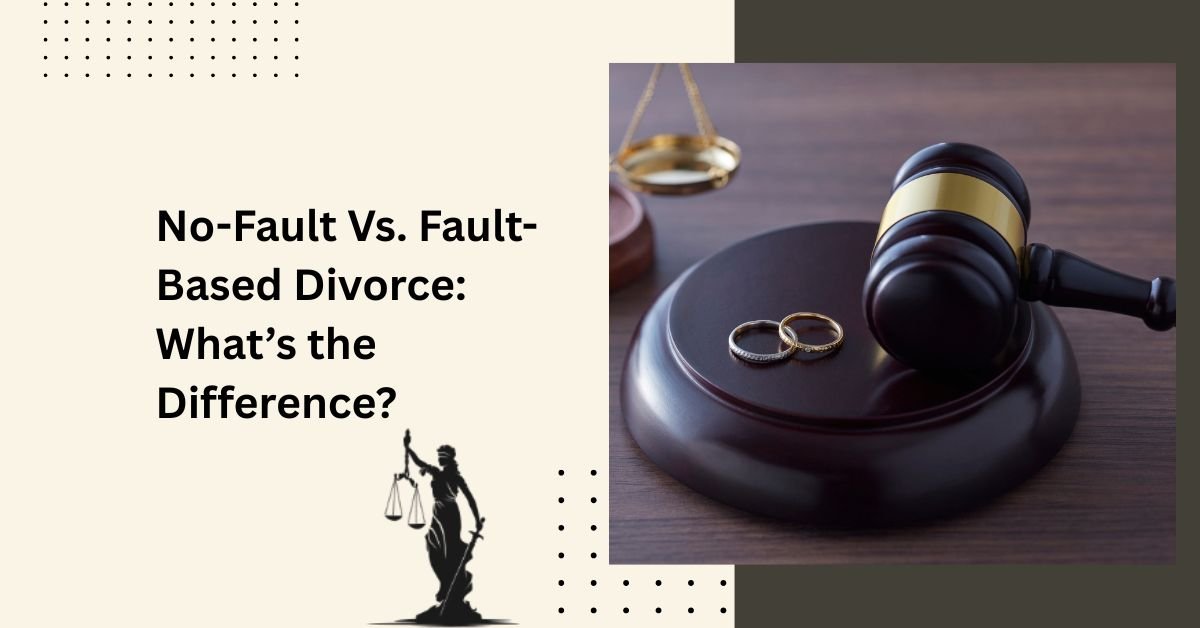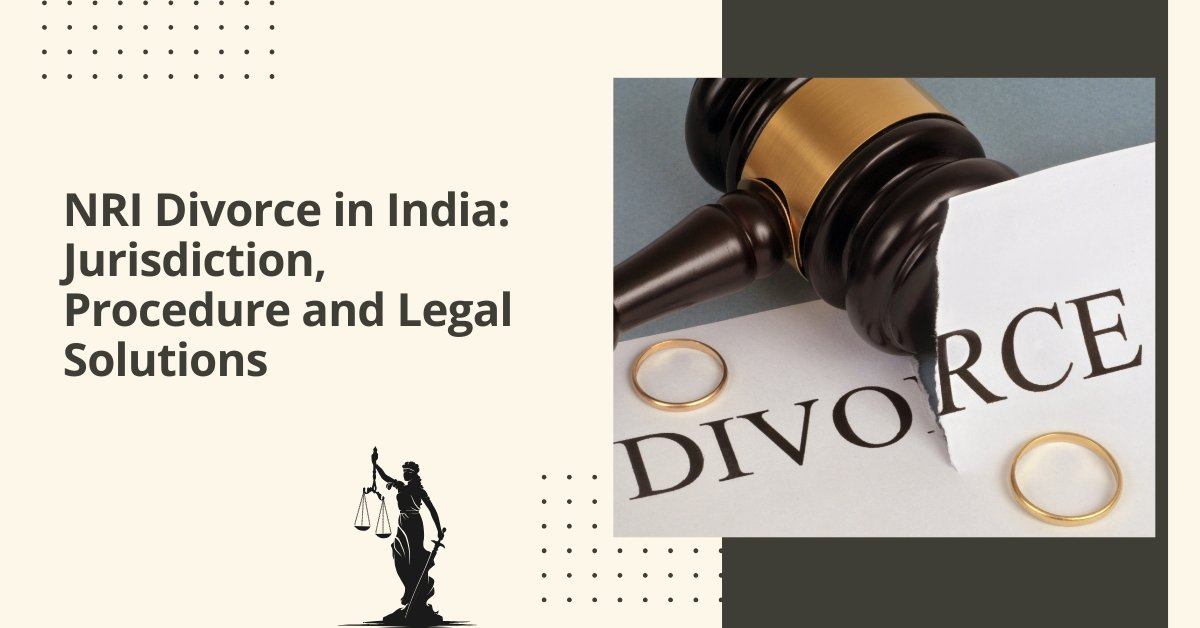No-Fault Vs. Fault-Based Divorce: What’s the Difference?
When couples decide to end their marriage, one of the most important legal questions is how they will file for divorce. In the United States and many parts of the world, divorces generally fall into two categories: no-fault divorce and fault-based divorce. While both options legally dissolve a marriage, the reasons, procedures, and consequences for each differ significantly.
Understanding the distinction between no-fault and fault-based divorce can help you make informed decisions, especially if you’re facing a complicated or emotionally charged separation. This article breaks down the key differences, benefits, and drawbacks of both divorce types to help you navigate your legal journey more confidently.
What Is a No-Fault Divorce?
A no-fault divorce allows a couple to end their marriage without placing legal blame on either spouse. The most commonly cited reasons include “irreconcilable differences” or an “irretrievable breakdown of the marriage.” These phrases simply mean that the couple can no longer live together harmoniously and that the marriage cannot be repaired.
Common Grounds for No-Fault Divorce
- Irreconcilable differences
- Irretrievable breakdown
- Incompatibility
In no-fault divorces, neither spouse is required to prove that the other did something wrong. This approach simplifies the process and often reduces the emotional strain involved.
Where No-Fault Divorce Is Recognized?
Every U.S. state allows no-fault divorce in some form. Some states, like California, are purely no-fault states, while others offer both no-fault and fault-based options. In India, couples can file for divorce by mutual consent under Section 13B of the Hindu Marriage Act or Section 28 of the Special Marriage Act.
What Is a Fault-Based Divorce?
A fault-based divorce, on the other hand, is one in which one spouse alleges that the other’s misconduct caused the marriage to fail. This form of divorce involves proving the wrongdoing of one party, and it usually requires presenting solid evidence in court.
Common Grounds for Fault-Based Divorce
- Adultery
- Domestic violence or cruelty
- Desertion (abandonment for a specified period)
- Drug or alcohol abuse
- Mental illness (in some jurisdictions)
- Criminal conviction or imprisonment
Because fault-based divorces involve accusations and evidence, they often become more complex and contentious.
Where Fault-Based Divorce Is Allowed?
Many jurisdictions, including states like New York and Texas, allow fault-based divorce filings. In India, fault-based divorce is governed under various personal laws such as the Hindu Marriage Act, the Indian Divorce Act, and the Parsi Marriage and Divorce Act.
Key Differences Between No-Fault and Fault-Based Divorce
Understanding the practical differences between these two types of divorce will help you choose the most appropriate legal route for your situation.
Burden of Proof
- No-Fault Divorce: You simply need to state that the marriage cannot be saved. No evidence is required to show wrongdoing.
- Fault-Based Divorce: You must prove the misconduct with relevant evidence—this could include witness testimony, photographs, or documents.
Cost and Time
- No-Fault Divorce: Typically quicker and more affordable, especially if both parties agree.
- Fault-Based Divorce: Can be expensive and drawn out due to the legal battles involved.
Emotional Toll
- No-Fault Divorce: Generally less stressful, making it easier to maintain civil communication, particularly when children are involved.
- Fault-Based Divorce: Often adversarial and emotionally draining due to accusations and court disputes.
Impact on Settlements
- No-Fault Divorce: Courts focus on fair division and the best interest of the children, rather than punishing a spouse.
- Fault-Based Divorce: A spouse’s misconduct can influence property division, alimony, and custody decisions.
Pros and Cons of No-Fault Divorce
Pros
- Simpler and quicker process
- Less legal and emotional conflict
- Cost-effective
- Suitable for couples who want to separate amicably
Cons
- No formal way to hold a spouse accountable for wrongdoing
- May seem unfair in cases involving abuse or adultery
- Can result in equal settlements even when one party was clearly at fault
Pros and Cons of Fault-Based Divorce
Pros
- Allows one spouse to document and prove harmful behavior
- May impact financial settlements, often favoring the wronged spouse
- Useful in custody battles where one parent’s behavior poses a risk to children
Cons
- Time-consuming and costly
- Emotionally taxing for both parties
- Requires solid evidence, which can be hard to gather
When to Choose No-Fault vs. Fault-Based Divorce?
The right type of divorce depends on your personal circumstances, goals, and the relationship dynamic at the time of separation.
Opt for No-Fault Divorce If:
- You and your spouse mutually agree to separate
- There’s no serious misconduct involved
- You want a peaceful and speedy resolution
- You aim to co-parent amicably or remain on good terms
Opt for Fault-Based Divorce If:
- Your spouse’s behavior endangered your safety or wellbeing
- You want to influence court decisions regarding alimony or custody
- You’re seeking legal acknowledgment of your spouse’s misconduct
- You’re emotionally prepared for a contested legal process
Making the Right Choice for Your Divorce
Understanding the difference between no-fault and fault-based divorce is crucial when ending a marriage. No-fault divorce offers a peaceful, efficient way to move on, while fault-based divorce gives you a legal platform to address serious misconduct.
The right choice depends on your specific situation. Whether you’re looking for a quick resolution or need to fight for justice and protection, knowing your legal options is the first step to a better future. Before taking action, consult a best divorce lawyer in Kondhwa Pune who can assess your case and recommend the most appropriate path forward.
Ending a marriage is never easy, but with the right information and legal support, you can make empowered decisions that prioritize your emotional health, financial stability, and family’s well-being.
Most Recent Posts
Category
Explore Our Services
Empower Your Future with Expert Legal Guidance. Consult with Leading Divorce Lawyers at Adv.Mayur N. Gajbhiye for Professional, Compassionate Representation, Ensuring a Smooth and Informed Legal Journey.








